Program content exclusively and uniquely designed for Project Arizona
Education is a very important part of Project Arizona. We want students to better understand the history of the place (United States of America) and learn the mechanisms of free market economy that made it prosperous. In Project Arizona, we have four courses, which will be given twice a week. Please, click on courses, to read more.
- United States Constitution Structure and Interpretation
- Civic Journalism
- Free Market Economics
- Comparative Ideology
- American Politics
- Public Speaking Masterclass
- Introduction to Liberty
United States Constitution Structure and Interpretation
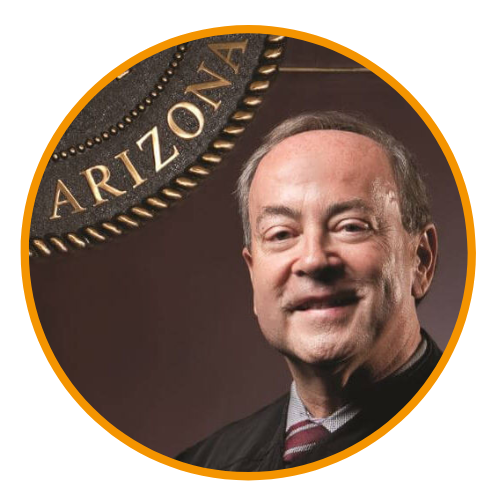
Justice Clint Bolick serves on the Arizona Supreme Court. He was appointed by Governor Doug Ducey on January 6, 2016.Previously, he was the] Vice President for Litigation at the Goldwater Institute. Before joining the Goldwater Institute in 2007, Bolick was co-founder of the Institute for Justice and later served as president of the Alliance for School Choice. Bolick has authored several books, most recently Death Grip: Loosening the Law’s Stranglehold Over Economic Liberty (2011) and David’s Hammer: The Case for an Activist Judiciary (2007). Bolick teaches Constitutional Law as an adjunct professor at Arizona State University School of Law and serves as a research fellow with the Hoover Institution.
Part 1: Structure of the Constitution
- Introduction to the U.S. Constitution: Discuss the ratification of the United States Constitution, the Bill of Rights, and the formation of the world’s first republican form of government.
- Separation of Powers: Address the structure of the constitution and the division of power between the legislative, executive, and judicial branches of government.
- Federalism: Why do we have state constitutions and a federal constitution? How do they govern concurrently, and what happens if there is a dispute in governance, i.e., which governing law controls?
- Administrative State: What is the American administrative state, and what constitutional provision gives it power?
Part 2: Power of Constitutional Interpretation
- Judicial Review, Supremacy, and Interpretation: The federal constitution is the supreme law of the land, and federal courts must perform a judicial review and interpret its meaning.
- Individual Rights Part I–First Amendment: The First Amendment protects freedom of speech, the press, assembly, religion, and government petition. Discover how courts have interpreted the First Amendment to broadly protect the expression of ideas and political discourse.
- Individual Rights Part II–Reconstruction Amendments: Discuss the “Second Founding” and the early interpretations and enforcement of the Thirteenth, Fourteenth, and Fifteenth Amendments.
- Individual Rights Part III–Modern Interpretation of the Fourteenth Amendment: Overview of the modern interpretation of the Equal Protection and Substantive Due Process clauses. Discuss how this modern interpretation has bolstered judicial law-making by the Supreme Court, e.g., Obergefell, Bostock, Roe v. Wade.
- Arizona’s Constitution: The Arizona Constitution serves as the state’s foundational law and acts as a “ceiling” for individual rights. Discuss the founding of the Arizona Constitution.
- Individual Rights – Arizona Constitution: Discuss key rights enumerated in the Arizona Constitution that are absent in the United States Constitution.
Civic Journalism
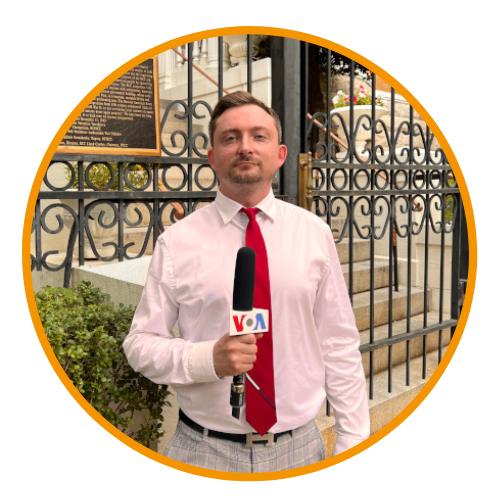
Alexey Gorbachev serves as an investigative reporter and anchor for the TV show “Why It Matters?” produced by Voice of America, the largest international broadcaster in the United States. His primary expertise lies in dissecting Russian propaganda, highlighting the atrocities committed during the invasion of Ukraine, unveiling the Kremlin’s disinformation campaigns, and exposing violations of human rights and press freedom.
Currently located in Washington, D.C., he made a pivotal move in 2019 after successfully completing his graduate study program at the esteemed Walter Cronkite School of Journalism at Arizona State University. Gorbachev’s journalism journey began in 2009 when he personally witnessed the unsettling reality of electoral fraud during the Moscow City Parliament elections. From 2011 to 2018, he worked as a political correspondent in Moscow, covering crucial topics including election fraud, rallies of the Russian opposition movement, human rights violations, suppression of freedom of speech, and persecution of political activists.
Before joining Voice of America, Alexey Gorbachev actively participated in the EU-Russia civil forum and made valuable contributions to the program at the European Solidarity Center in Gdansk, Poland. He is a graduate of the Moscow School of Civic Education, a significant institution promoting democratic values.
Alexey Gorbachev’s Feedback on His Project Arizona’s Teaching Experience
‘Phoenix, Arizona’s rich historical tapestry offers an invaluable context for discussing and promoting freedom today. Hosting Project Arizona in Phoenix would inspire future leaders. As George Santayana famously said, “Those who cannot remember the past are condemned to repeat it.” In the spirit of this wisdom, Phoenix provides a meaningful backdrop for engaging with the principles of liberty and leadership.
The fellows I met during Project Arizona last year were bright and insightful students and terrific representatives of their home countries. Along with teaching them, I was also able to learn from them. That’s why I am looking forward to this year!
I am very excited to meet new students and learn more about their backgrounds. Last year, I had very insightful conversations with students from India and Spain. I was amazed that, in their early 20s, they had already achieved a lot in their fields and could speak eloquently on topics like women’s empowerment, artificial intelligence, and advocating for freedom and liberties. Encounters with such promising individuals make me very hopeful about the future of humanity!’
AI and Internet Tools in Journalism
- Exploring the Complexities of AI and Internet Tools in Journalism
- Discussion on the multifaceted dynamics surrounding the utilization of AI and Internet tools in the field of journalism.
- Workshop: Detecting Deep Fakes and Identifying AI-Generated Content
- Learn techniques for recognizing deep fakes and identifying AI-generated images and stories.
- Fact-Checking and Combating Misinformation Online
- Strategies and methods for fact-checking and combating misinformation in the digital space.
- Fellows’ Assignment
- Produce a presentation on the media landscape in your respective countries.
- Due on Friday.
Combating Kremlin Propaganda Workshop
- Assessing the Impact of Anti-Ukrainian and Pro-Kremlin Propaganda in Europe
- A critical examination of the effectiveness of anti-Ukrainian and pro-Kremlin propaganda in Europe.
- Case Study: The Balkans
- In-depth analysis of propaganda in the Balkan region.
- Guest Speaker: Expert on Disinformation
- Alma Telibecervic, ASU, will share insights and expertise on disinformation.
- Interactive Q&A Session
- Engage with students in a discussion on propaganda in their respective countries and how they can support independent journalism as future leaders.
Investigative Reporting Workshop
- Exploring Outstanding Investigations on the Ukraine War
- Showcase exemplary investigative reports on the war in Ukraine from Russian, European, and American media outlets.
- The Evolution of Civic Journalism in Russia During Putin’s Second Decade
- Examine the rise and fall of civic journalism in Russia.
- Narrative Techniques in Journalism
- Discuss various methods used by journalists to effectively narrate stories.
- Guest Speaker: Investigative Journalist
- Isaac Windes, an American journalist, will provide insights and engage in a Q&A session.
- American Investigative Reporting Techniques
- Explore techniques for conducting thorough investigations, protecting sources, and ensuring safety while reporting.
- Niche American Media Focus on Investigative Reporting
Growing Polarization in American Media and Fellows’ Presentations
- Presentations on Media Landscape in Fellows’ Home Countries
- Fellows will present an overview of the media landscape in their respective countries.
- Report on the Growing Polarization of American Media
- An overview of the polarization within American media, including left-leaning and right-leaning news sources.
- Guest Speaker: Craig Allen, Professor, ASU
- Engage in a discussion with Craig Allen, a professor at ASU.
- Interactive Q&A Session and Discussion. Key takeaways from the course.
Free Market Economics
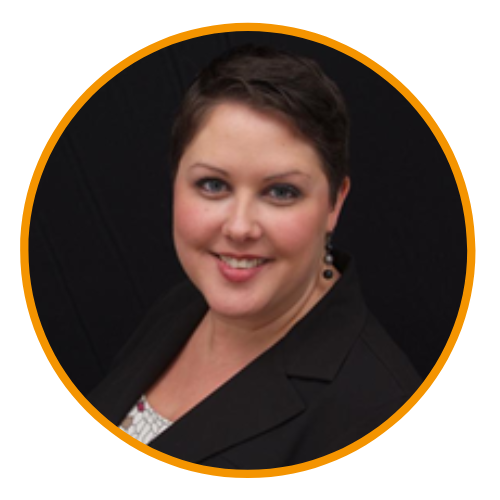
Krystal Slivinski is an assistant professor of economics at Grand Canyon University. Before teaching economics, Krystal lobbied the Arizona Legislature to improve tax, budget, and regulatory policies and trained K-12 teachers to teach economics with the Arizona Council on Economic Education. Prior to moving to Arizona, Krystal spent nearly a decade in Washington, D.C. working in think tanks and the public policy world.
Part 1: The Economic Way of Thinking
-
- People make choices (scarcity and opportunity cost)
- Self-interest and Adam Smith
- How trade creates wealth
- Trading game
- Tag check activity
Part 2: The Free Market System: Prices & Profits
- How supply and demand work (simplified)
- What prices know that you don’t (Hayek’s influence)
- Why minimum wage doesn’t make sense
- How to measure and encourage entrepreneurship
- Creative destruction
Part 3: Property Rights and Rule of Law
- Economic Institutions
- Transparency and predictability in laws
- Accountability of government vs. corruption
Part 4: Public Choice Theory
- Voting myths
- Median voter hypothesis
- Incentives that politicians and bureaucrats face
Part 5: Failed Solutions to Poverty around the Globe
- Foreign aid game
- Missions and volunteers (article)
- Myth of the virtuous poor
- Types of Failed Economic Systems
Comparative Ideology
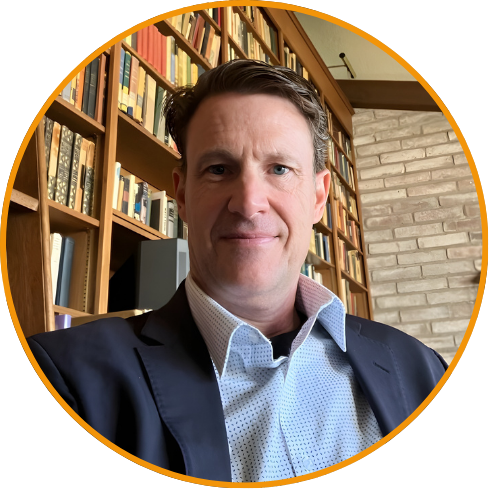
Tom Jenney lives in Phoenix, Arizona. He was born in Tucson, where he graduated from University High School. He earned an associate degree from the New Mexico Military Institute and a bachelor’s degree in Spanish and Latin American Studies from Georgetown University. In Washington, DC, and Arizona, Jenney has worked as a think tanker, fundraiser, grassroots organizer, and lobbyist. You probably know him best as the state director of Americans for Prosperity from 2007 to 2017. He has taught Government, Economics, and Spanish to high schoolers and has served as a bookkeeper and treasurer for several nonprofit organizations. He currently works as the executive director of the McClelland Irish Library in Phoenix and has recently published a collection of short stories titled American Futures. He has served as a deacon and an elder at his church. He is happily married and is the adoring father of two children. In his free time, he backpacks, goes bouldering, and shoots a lot of sporting clay targets.
Tom Jenney’s feedback on his Project Arizona Teaching Experience:
‘In the past four decades, Arizona has seen the development of a broad group of pro-liberty organizations I call the “pipeline.” We have university centers, policy think tanks, grassroots organizations, legislative lobbying shops, public-interest law firms, politicians, and independent rabble-rousers fighting on behalf of free market policies, property rights, self-defense rights, school choice, and other freedom causes. As part of Project Arizona, students from around the globe can gain insight and hands-on experience from Arizona’s dedicated and successful freedom fighters.
Under the leadership of Jacek Spendel and his talented team, Project Arizona brings some of the most promising young freedom fighters in the world to spend a few weeks in Arizona. They get to immerse themselves in our culture of freedom and learn skills and life lessons from some of the best practitioners in America’s liberty movement. ‘
Class 1: Different Strokes for Different Folks
The Pipeline of Social Change (Hayek/Fink)
Haidt, Moral Foundations Theory, The Righteous Mind
Kling, The Three Languages of Politics
Thoughts on Myers-Briggs
Intro to 14 ideologies in Jenney, American Futures
Class 2: Libertarians
Suggested stories from American Futures:
“Slouching Toward Leviathan” (Individualist Libertarianism, Vol 2)
“Ass-Kickers” (Paleo-Libertarianism, Vol 3)
“Tapping Out?” (Market Anarchism, Vol 3)
Class 3: Conservatives
Suggested stories from American Futures:
“Tungsten” (Neo-Conservatism, Vol 2)
“Weight and Balance” (Nationalist Conservatism, Vol 2)
“The Wah” (Paleo-Conservatism, Vol 2)
Class 4: Progressives and Socialists
“Rules for Radicals” (Progressive Social Democracy, Vol 1)
“The Unfinished Struggle” (Democratic Socialism, Vol 1)
“Justice, Mercy, Humility” (Democratic Socialism, Vol 1)
Class 5: Left-Liberals and Centrists
“Rigged” (Centrism, Vol 1)
“Conduct Unbecoming” (Left-Liberalism, Vol 1)
“Noncompliant” (Left-Liberalism, Vol 1)
American Politics
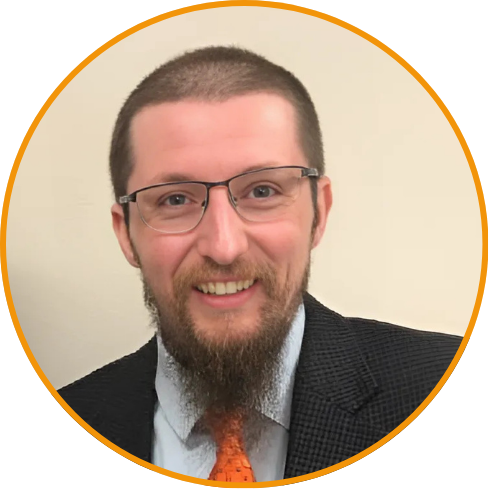
Joel Webster is a Postdoctoral Scholar with the Center for American Institutions at Arizona State University. His work focuses on the history of politics and conservatism in Modern America. He is in the process of turning his recent dissertation, “Most Unpatriotic and Unholy Alliance”: Reexamining the Origins of the Conservative Coalition in the United States Senate, 1933-9, into a book manuscript.
1. The Eternal Empire: Greece, Rome, Britain, and America
2. America’s First Revolution, States, Federalism, and the Constitution
3. American Nations
4. The Civil War and America’s Second Revolution
5. The American Civic Religion
6. The New Deal, the Civil Rights Movement, and America’s Third Revolution
7. WWII, The Cold War, the War on Terror, the expansion of the security state, and MAGA
8. Mapping the political process: How a bill becomes a law and tour of the Arizona Capitol.
Public Speaking Masterclass

Alexey Gorbachev serves as an investigative reporter and anchor for the TV show “Why It Matters?” produced by Voice of America, the largest international broadcaster in the United States. His primary expertise lies in dissecting Russian propaganda, highlighting the atrocities committed during the invasion of Ukraine, unveiling the Kremlin’s disinformation campaigns, and exposing violations of human rights and press freedom. Currently located in Washington, D.C., he made a pivotal move in 2019 after successfully completing his graduate study program at the esteemed Walter Cronkite School of Journalism at Arizona State University. Gorbachev’s journalism journey began in 2009 when he personally witnessed the unsettling reality of electoral fraud during the Moscow City Parliament elections. From 2011 to 2018, he worked as a political correspondent in Moscow, covering crucial topics including election fraud, rallies of the Russian opposition movement, human rights violations, suppression of freedom of speech, and persecution of political activists. Before joining Voice of America, Alexey Gorbachev actively participated in the EU-Russia civil forum and made valuable contributions to the program at the European Solidarity Center in Gdansk, Poland. He is a graduate of the Moscow School of Civic Education, a significant institution promoting democratic values.
Alexey Gorbachev’s Feedback on His Project Arizona’s Teaching Experience
‘Phoenix, Arizona’s rich historical tapestry offers an invaluable context for discussing and promoting freedom today. Hosting Project Arizona in Phoenix would inspire future leaders. As George Santayana famously said, “Those who cannot remember the past are condemned to repeat it.” In the spirit of this wisdom, Phoenix provides a meaningful backdrop for engaging with the principles of liberty and leadership. The fellows I met during Project Arizona last year were bright and insightful students and terrific representatives of their home countries. Along with teaching them, I was also able to learn from them. That’s why I am looking forward to this year! I am very excited to meet new students and learn more about their backgrounds. Last year, I had very insightful conversations with students from India and Spain. I was amazed that, in their early 20s, they had already achieved a lot in their fields and could speak eloquently on topics like women’s empowerment, artificial intelligence, and advocating for freedom and liberties. Encounters with such promising individuals make me very hopeful about the future of humanity!’
1. Public Speaking Essentials
2. Rhetoric and the Tools of Persuasion
3. Storytelling 101
4. Advanced Public Speaking
Introduction to Liberty
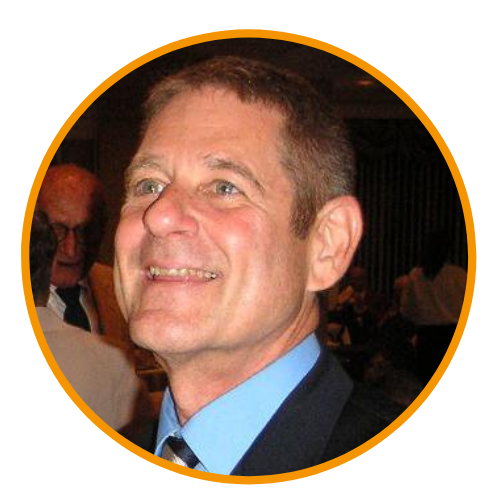
Glenn Cripe has brought LLI’s Liberty Camps and Seminars to over 3400 students in 34 countries since 2005, expanding his network of freedom fighters around the world. When not hosting Liberty Camps, Glenn recruits and develops new local partners, teachers, and donors for the Institute. He also enjoys playing classical piano, attending jazz, opera, and folk events, and hiking in the Arizona mountains and desert.
Glenn Cripe’s Feedback on his Project Arizona Teaching Experience:
‘As a teacher of young people, I looked for opportunities to share with others the excitement and possibilities I found, especially in Phoenix. My reward for returning to Phoenix every year, regardless of where I live, is to meet, inspire, and mentor young people from other countries who are truly motivated to come and learn special history and ideas in a special place so we can all work together to create a better, freer world.
In Phoenix, I found a very special network of educated, intelligent, friendly, freedom lovers who also came to Phoenix not just for constant sunshine and comfortable retirement, but to pursue their potential and dreams of a better future for all of us.’
1. What Makes Countries Rich & Poor
2. Spreading Freedom through Entrepreneurship
3. How to elevate your writing and speaking above the natives
